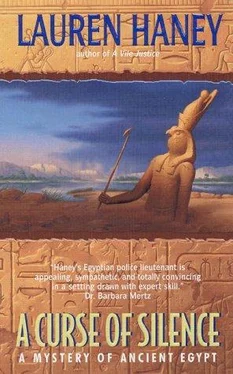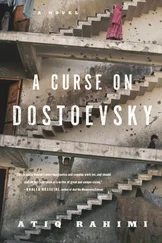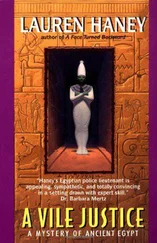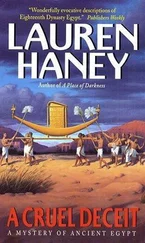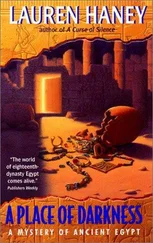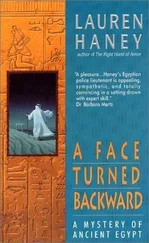Lauren Haney - Curse of Silence
Здесь есть возможность читать онлайн «Lauren Haney - Curse of Silence» весь текст электронной книги совершенно бесплатно (целиком полную версию без сокращений). В некоторых случаях можно слушать аудио, скачать через торрент в формате fb2 и присутствует краткое содержание. Жанр: Исторический детектив, на английском языке. Описание произведения, (предисловие) а так же отзывы посетителей доступны на портале библиотеки ЛибКат.
- Название:Curse of Silence
- Автор:
- Жанр:
- Год:неизвестен
- ISBN:нет данных
- Рейтинг книги:3 / 5. Голосов: 1
-
Избранное:Добавить в избранное
- Отзывы:
-
Ваша оценка:
- 60
- 1
- 2
- 3
- 4
- 5
Curse of Silence: краткое содержание, описание и аннотация
Предлагаем к чтению аннотацию, описание, краткое содержание или предисловие (зависит от того, что написал сам автор книги «Curse of Silence»). Если вы не нашли необходимую информацию о книге — напишите в комментариях, мы постараемся отыскать её.
Curse of Silence — читать онлайн бесплатно полную книгу (весь текст) целиком
Ниже представлен текст книги, разбитый по страницам. Система сохранения места последней прочитанной страницы, позволяет с удобством читать онлайн бесплатно книгу «Curse of Silence», без необходимости каждый раз заново искать на чём Вы остановились. Поставьте закладку, и сможете в любой момент перейти на страницу, на которой закончили чтение.
Интервал:
Закладка:
A tribesman plunged through a tangle of men and rushed
Bak with a spear. He sidestepped the weapon, knocked it from the man’s hand, and shoved him toward Sergeant Roy, who tapped the man on the head with his mace, gave Bak a quick grin, and leaped aside to fend off a man with an ax. Roy also was showing brave colors.
“Bak! Behind you!” Nebwa bellowed.
Bak pivoted, deflected a harpoon aimed at his midsec tion, and raised his staff to clout the tribesman. His foot came down on something wet and slid out from under him.
He fell hard on his back, his shield half beneath him. The force of the impact knocked the staff from his fingers. A vicious smile spread across his attacker’s face and he leaped forward to finish the task he had begun. As he raised the weapon above Bak’s breast, his mouth and eyes opened wide, the harpoon slipped from his fingers, and he toppled forward, falling on Bak with such force he knocked the breath from him. A long dagger protruded from his back.
Minkheper stepped close and jerked the weapon free.
“Are you all right, Lieutenant?”
Bak nodded. “I owe you a debt I doubt I can ever repay.”
The captain rolled the body aside and offered his hand.
“No debts of honor, I pray. The very thought makes me ill.” He pulled Bak to his feet, wiped the sweat from his brow, smiled grimly. “Will this battle never end? I’m bone weary.”
“Even Nebwa looks tired,” Bak said, nodding toward his friend.
The troop captain, Amonked, and a guard were fighting a motley group of tribesmen bent on taking all they could carry from a stack of chairs, stools, and woven reed chests.
One sat on the ground clutching his bloody side among a cascade of fine white linen spilling from one of Nefret’s chests.
“Maybe I can break the impasse,” Minkheper said and strode in their direction. Blood dripped from the long blade of his dagger, making him look like the murderer he was.
Bak picked up his staff and shield. His debt to Minkheper lay heavy in his heart. How could he take the captain before
Commandant Thuty or, more likely, the viceroy, and charge him with the murder of Baket-Amon? How could he plead for the death of a man who had saved his life?
With the sun squashed hard against the horizon, the num bers of men fighting within the encampment had dwindled.
The enemy who remained were more intent on looting than risking their lives for a war that looked to be lost. The heart of the battle had shifted to the open grazing land. The tribesmen still on their feet and well enough to retreat now found themselves facing not only the men of the caravan and Ahmose’s troops, but the farmers Hor-pen-Deshret had terrorized for so many years.
Bak wove a path through the piles of supplies and equip ment, stepping around the dead and wounded. A few of his own men lay among the enemy, who had fallen in large numbers during the battle. Both friend and foe watched him pass, the few he knew with pained smiles, the rest with looks pleading for help or wearing the blank expression of exhaustion. He summoned one of Amonked’s porters, go ing among the wounded with poultices and bandages, and ordered him to help as best he could.
Thinking to rejoin the battle on the open plain, Bak laid aside his staff with some reluctance and picked up a spear leaning against a high pile of grain sacks, their contents dribbling out of holes pierced during the battle. He swung around-and found Hor-pen-Deshret blocking the narrow aisle. They both stared, equally shocked by the unexpected encounter. The tribal leader was no longer the proud, strut ting warrior. Sweat stained his leather kilt, armlets, and anklets; his broad collar hung askew; the bright feather drooped from his hair. Bak had no doubt he looked equally worn and tattered.
Shaking off his surprise, Bak bounded toward the enemy chief, thrusting his spear. Hor-pen-Deshret parried the at tack with his own spear and lunged forward. Bak took a quick step back and raised his shield to deflect the deadly bronze point. His opponent, assuming the backward step a sign of retreat, bared his teeth in a triumphant smile and inched forward, moving in for an easy kill. Or so he thought.
Both men lunged, giving their opponents no time to think. While the tribal chief thrust forward, Bak swung his weapon sideways, using all the force he could muster, driv ing Hor-pen-Deshret’s blade into a stack of water jars. With a loud crash, three of the tall, heavy cylindrical containers shattered, gushing water and unbalancing the stack. Thirty or more vessels tumbled to the ground and began to roll, striking Bak and his opponent in the ankles, unbalancing them. Both men lost weapons and shields in a futile strug gle to remain upright.
They scrambled to their feet and waded through the still rolling jars to the edge of the encampment. Bak, like his opponent, searched frantically for an undamaged shield and spear among those that had fallen during the initial attack.
Of the few remaining shields, most had been slashed or broken. Neither man could find an unbroken spear. As tired as he was, Bak dreaded close combat-but he had no choice. He jerked his dagger free of its sheath.
The tribal chief drew a similar weapon and bounded for ward. Bak ducked away. The pair danced to left and right, out of arm’s reach, feinting, testing each other’s speed, strength, vigilance. More than once they clashed, each hold ing his opponent’s weapon at a distance. Hor-pen-Deshret was the more muscular man but, thanks to the lord Amon and a hardy sense of survival, Bak drew on a strength and cunning he did not know he possessed.
When neither man could bear the tension any longer, they backed off to circle each other again, sweat pouring forth, gasping for air. Bak’s legs grew heavy, his dance became a shuffle. Hor-pen-Deshret, the feather in his hair broken and bedraggled, looked equally tired, but his move ments seemed lighter and quicker. Bak knew that if he did not soon conquer the tribesman, he would lose the battle.
And his life.
Desperately in need of a spear, or any weapon that would place him at a distance from his opponent, he stepped back among the shields lying on the ground. Allowing his atten tion to stray for a mere instant, he spotted the shaft of a spear, its point broken off. As Hor-pen-Deshret lunged to ward him, he scooped it up and slammed it against his arm, shattering the bone. The weapon fell from the tribal chief’s hand. He gave Bak a look of utter incredulity.
And dropped to his knees in supplication.
Bak stood with Amonked and Nebwa, watching Ahmose and the troops from Askut rounding up what was left of the tribal army. The local people looked on, their eyes glit tering with satisfaction. About a hundred men of the desert had survived unscathed, more than half were injured to a lesser or greater degree, and the remainder were dead, gath ered together and laid out to be buried on the verge of the desert at daybreak.
“Such carnage,” Amonked said, shaking his head sadly.
“What will their families do?”
“Some will survive, the rest will starve,” Nebwa said.
“As always.” He sounded cold, but a tightness in his voice betrayed his true feelings.
Amonked led them to the short line of fallen archers, guards, and drovers, fourteen men of the caravan who had died at the hands of the enemy. Pawah was on his knees at the end of the row, his head bent over the prone body of
Thaneny. The scribe had fallen to an enemy spear toward the end of the fighting.
The youth looked up, unashamed of the tears rolling down his cheeks. “I loved Thaneny like a brother. I shall miss him always.”
Amonked knelt beside the boy and placed an arm around his shoulders. “No man will ever take his place.” He laid his free hand on the scribe’s shoulder and his voice thick ened with emotion. “He was my right hand, not my servant but my friend.”
Читать дальшеИнтервал:
Закладка:
Похожие книги на «Curse of Silence»
Представляем Вашему вниманию похожие книги на «Curse of Silence» списком для выбора. Мы отобрали схожую по названию и смыслу литературу в надежде предоставить читателям больше вариантов отыскать новые, интересные, ещё непрочитанные произведения.
Обсуждение, отзывы о книге «Curse of Silence» и просто собственные мнения читателей. Оставьте ваши комментарии, напишите, что Вы думаете о произведении, его смысле или главных героях. Укажите что конкретно понравилось, а что нет, и почему Вы так считаете.
